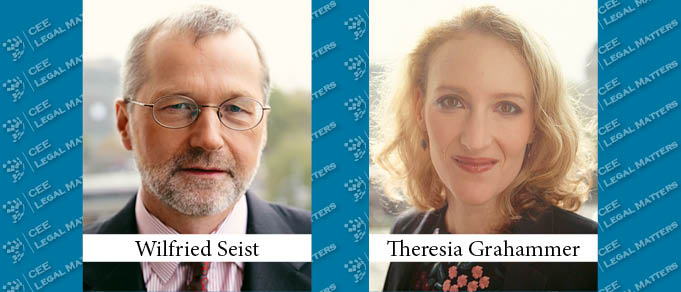A year has passed since the outbreak of COVID-19 in Austria and many legal problems remain unresolved. The problem seems new, but the legal provisions of the Austrian Civil Code em-ployed to deal with thae consequences of the pandemic are more than 200 years old, and were drafted in order to deal with quite different pandemic effects. The law refers to “extraordinary events” such as “fire, war or pandemic, major floods, weather events.” There is agreement that COVID-19 is a pandemic and therefore an extraordinary event in the meaning of the law.
The consequences for a lessee’s obligation to pay rent depend on whether the lease agreement qualifies as “Miete” or “Pacht.” The Austrian Civil Code distinguishes between simple lease agreements for a leased space (an apartment, business premises, plot of land, etc.) which are called “Miete,” and lease agreements for a company or business opportunity, which are called “Pacht.” In practice, it is often difficult to determine whether a lease agreement is “Miete” or “Pacht,” especially for lease agreements in shopping centers.
According to Art. 1104 of the Austrian Civil Code, in the case of an extraordinary event, the rent is reduced for “Miete” if the leased space is unfit for use. If the leased space is still partially fit for use, the rent is reduced proportionately. The extent of the reduction is determined by the extent and duration of the un-usability, depending on the agreed-upon purpose of the use of the leased object. There are no clear guidelines as to how to calculate the rent reduction. The only decision from the Austrian Supreme Court dealing with a rent reduction based on an extraordinary event dates from 1915, when the lessee of an apartment fled from enemy troops during World War I and left his apartment and belongings behind. The Austrian Supreme Court stated that the leased apartment was still partially fit for use because the lessee could leave his furniture in the deserted apartment and did not need to rent an additional storage room.
In the case of a “Pacht,” under Art. 1105 of the Austrian Civil Code, if the lease agreement was concluded for a longer term than six months, the rent is only reduced if the leased object is completely unfit for use. As long as the leased object remains slightly fit for use, the lessee has to pay the full rent. When Art. 1105 of the Austrian Civil Code was drafted in 1811, the members of the legislative committee were thinking of lease agreements for country estates and farms. When a case for rent reduction of a business lease was brought before the Austrian Supreme Court in 1965, the court did not see any problem in treating a business lease in the same way as an agricultural lease in 1811. However, the Austrian Constitutional Court might have a different view. It is currently being debated if, in cases where a lease agreement that is considered “Pacht” is close to “Miete,” Art. 1105 of the Austrian Civil Code could be unconstitutional because it treats similar situations very differently. The Austrian Constitutional Court has not yet decided on such a case.
There is also an ongoing debate as to whether only direct effects of COVID-19 on a leased object, such as legal restrictions imposing a lockdown or opening restrictions, can lead to a rent reduction, or whether the overall impact of COVID-19, including a general economic decline, can be considered. Most likely it will take a year or two more before this question is brought before and decided by the Austrian Supreme Court.
By Wilfried Seist, Head of Real Estate, and Theresia Grahammer, Attorney at Law, DSC Doralt Seist Csoklich Rechtsanwalte
This Article was originally published in Issue 8.2 of the CEE Legal Matters Magazine. If you would like to receive a hard copy of the magazine, you can subscribe here.
















